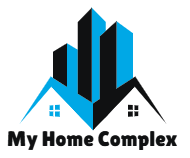The Most Common Tenant Complaints and How to Address Them

When you’re working in property management in San Diego, the list of responsibilities you must pay attention to in order to keep your tenants happy and your properties in their best shape can feel endless.
Fortunately, for many property managers, these responsibilities tend to involve routine maintenance of properties, which is typically the easy part. Often, the most challenging aspect of the job is communicating with tenants and tending to their individual needs.
Property Management in San Diego: Handling Common Tenant Complaints
Though every tenant that you develop a working relationship with through property management in San Diego will be a bit different from the others, there are some common complaints that property managers will see more than others.
Your relationship with your tenants hinges on how you respond to their complaints. If you handle them with tact and care, you can maintain or even improve your relationship with your tenant.
Pest Problems
An invasion of pests is something that any property manager can be sympathetic to, since no one wants to find an infestation of insects or rodents in their home. Additionally, if you manage an apartment, you’ll want to respond to this complaint as quickly as possible to avoid the problem spreading to other units.
As soon as you receive this complaint, take immediate action by calling an exterminator and scheduling an appointment for pest removal, as well as a follow-up for approximately a week after to make sure the pests are completely gone.
You can also give your tenants some tips about how they can help to avoid pest infestations in the future and schedule regular pest treatment as a preventive measure.
Loud Neighbors
When tenants complain about a loud neighbor next door, property managers can often find themselves in a predicament.
In many cases, the neighbor causing the noise isn’t under the responsibility of the same property manager, which means you don’t have the same jurisdiction over their behavior on their property that you would with one of your own tenants.
Property managers can help to mitigate excessive noise by:
- Adding more shrubbery or walls between properties
- Installing soundproofing measures inside the home
- Increasing insulation
If the issue persists, however, most property managers should encourage their tenant to try to solve the issue amicably by speaking with the neighbor themselves.
If the neighbor receiving noise complaints against them is one of your tenants, you should speak with them yourself about the issue and see what you each can do about reducing the noise. Make sure to keep communication open with the tenant or tenants that have complained and let them know that you’re working toward a resolution.
Maintenance Issues
There are many moving parts within a home, which means your tenants are bound to have a maintenance issue at some point. That is why creating a simple way for tenants to submit maintenance issues or requests for repairs can be such a helpful step for both parties.
If you handle many tenants, create an online form that your tenants can submit at their convenience for repairs. However, make sure the maintenance tasks that you are responsible for as the property manager are clearly laid out in your leases so that your tenants don’t have unreasonable expectations.
Privacy
The role of the property manager doesn’t give anyone the right to enter someone’s living quarters without proper notice. Not only is it very displeasing to tenants when their property manager enters without asking, but it can actually violate tenants’ rights.
Provide your tenants with the privacy you would want if the roles were reversed, and make sure to ask them in advance if you need to enter their unit for any reason.
Poor Communication
The relationship between the tenant and the property manager can disintegrate quickly when communication is poor.
Even if you don’t lay out your specific means of communication with tenants in your lease, it is important to respond to their messages and requests for maintenance in a timely manner so that you can maintain their trust in you.
As the property manager, it is in your own best interests as well to complete any needed repairs sooner rather than later. Taking care of tenant complaints in a way that satisfies everyone involved is definitely possible through open, prompt communication.




